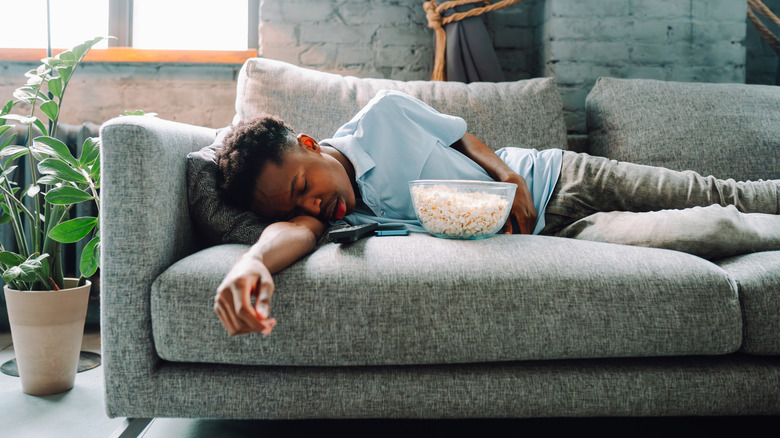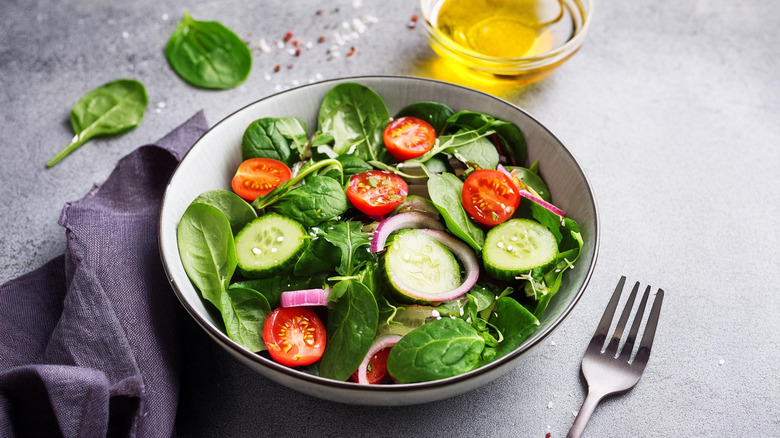Is 'Food Coma' A Real Thing?
We've all been there. After a good meal, you're ready to pass out on the couch for a few hours. Food comas are practically a universal experience, but one that's surprisingly poorly understood given how common they seem to be, with few studies available that document their causes or effects. Thankfully, though, that doesn't mean that there's no info.
First off, you ought to know that a "food coma" isn't a real coma. After all, you don't spontaneously drop to the floor once you finish a big meal. The medical term is actually postprandial somnolence, which literally just means feeling sleepy after eating. The causes aren't well understood, but one possible connection is an overlap between the parts of the brain responsible for digestion and those responsible for sleep. It could also be that lunch — often the main culprit in food comas — coincides with what's known as the 12-hour harmonic, a period between 2:00 and 4:00 p.m. when we get sluggish as part of our natural circadian rhythm. Eating a lot of food doesn't cause these sleepy hours, but it can contribute to them.
And of course, the type of food we eat matters when it comes to inducing this sleepy state. Most know that eating a lot of Thanksgiving turkey will make you drowsy thanks to a chemical in the meat called tryptophan, but any meal that's rich in carbs, fats, and proteins is much more likely to cause a food coma than lighter ones like a salad.
How to deal with a food coma
When you feel a so-called food coma coming on, don't worry. It's not harmful and should go away in a few hours. Unless you're doing something where it's important to pay attention, like school, driving, work, or a strenuous physical activity, a little sleepiness in the middle of the day won't hurt you. Take the opportunity for an afternoon nap if you wish.
If you'd rather not deal with a food coma, there are ways to perk yourself up after eating a big meal. Exposing yourself to bright light can help counteract the drowsiness, for example, so perhaps take a quick walk outside to get some energy back. Drinking a cup of coffee before eating can also be of assistance, thanks to the boost from the caffeine, and it can help you digest that meal as a bonus.
There are also ways to prevent the sleepiness in the first place. Since big, heavy meals are more likely to cause a food coma, opt for lighter ones with fruits and veggies, like a summer squash salad with basil and burrata. You can also try getting more sleep at night. You may already know from experience that sleep deprivation can make post-meal drowsiness worse. In fact, frequently experiencing tiredness after eating could be a sign that you're not sleeping as much as you should, especially if you're not eating big meals.

